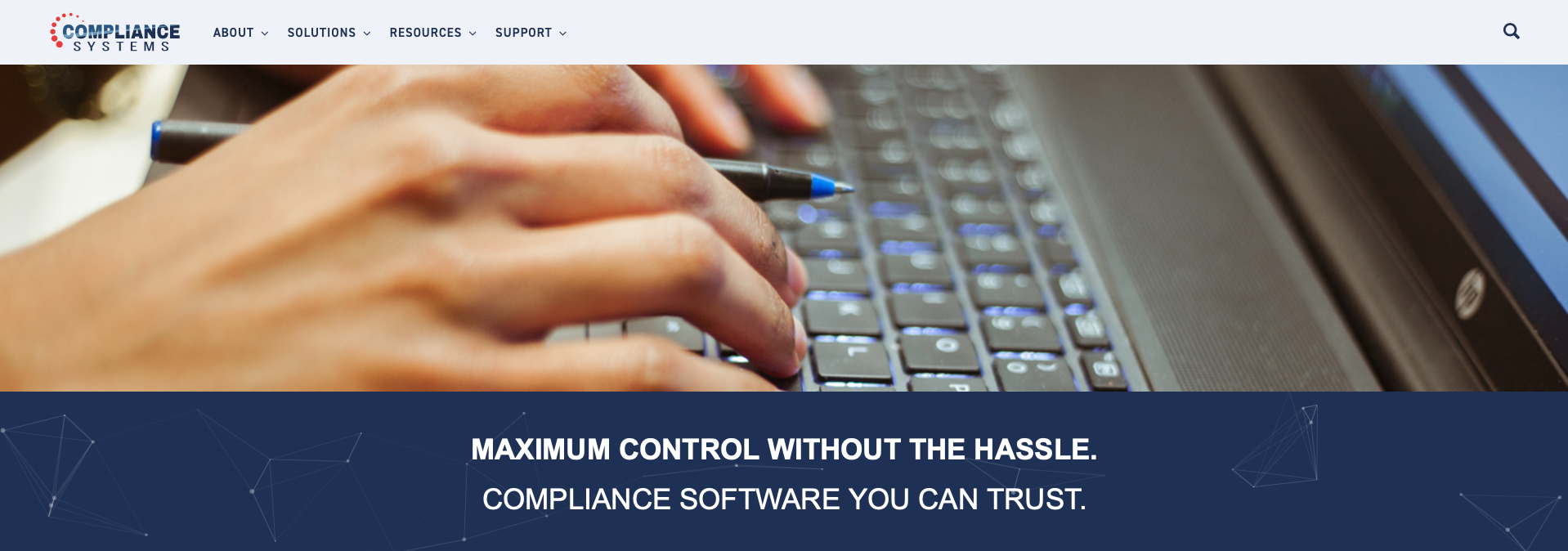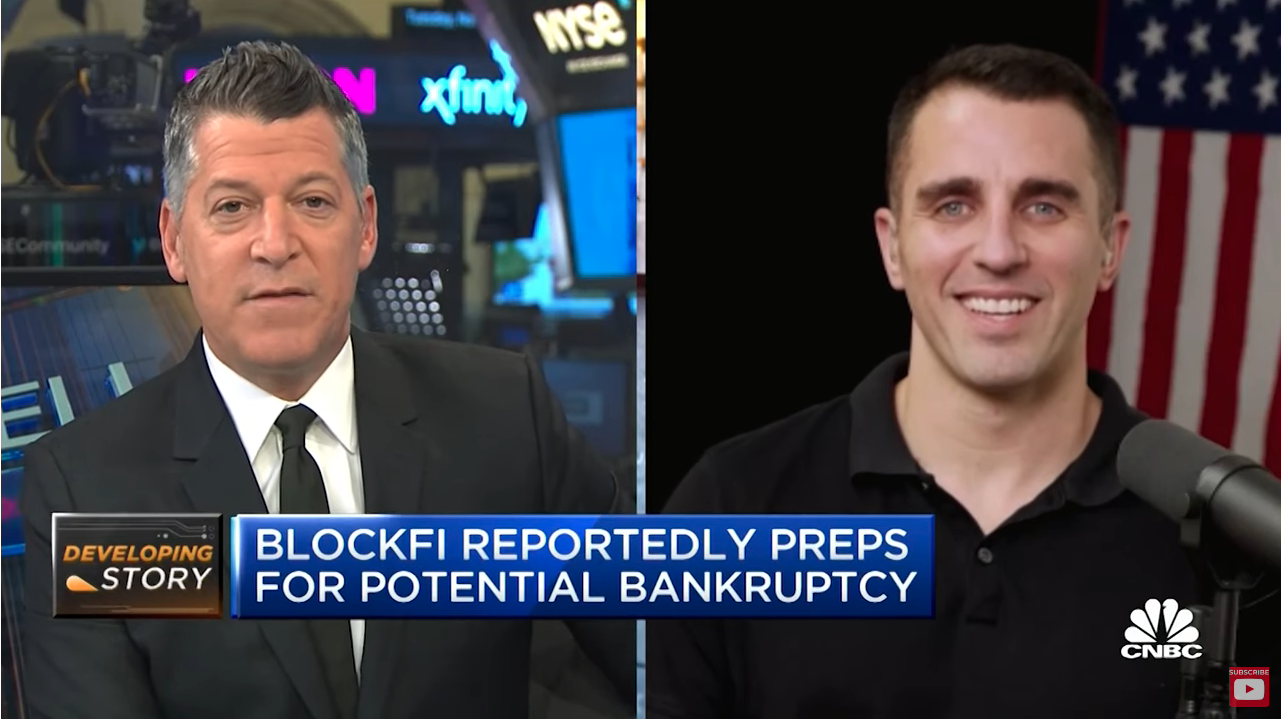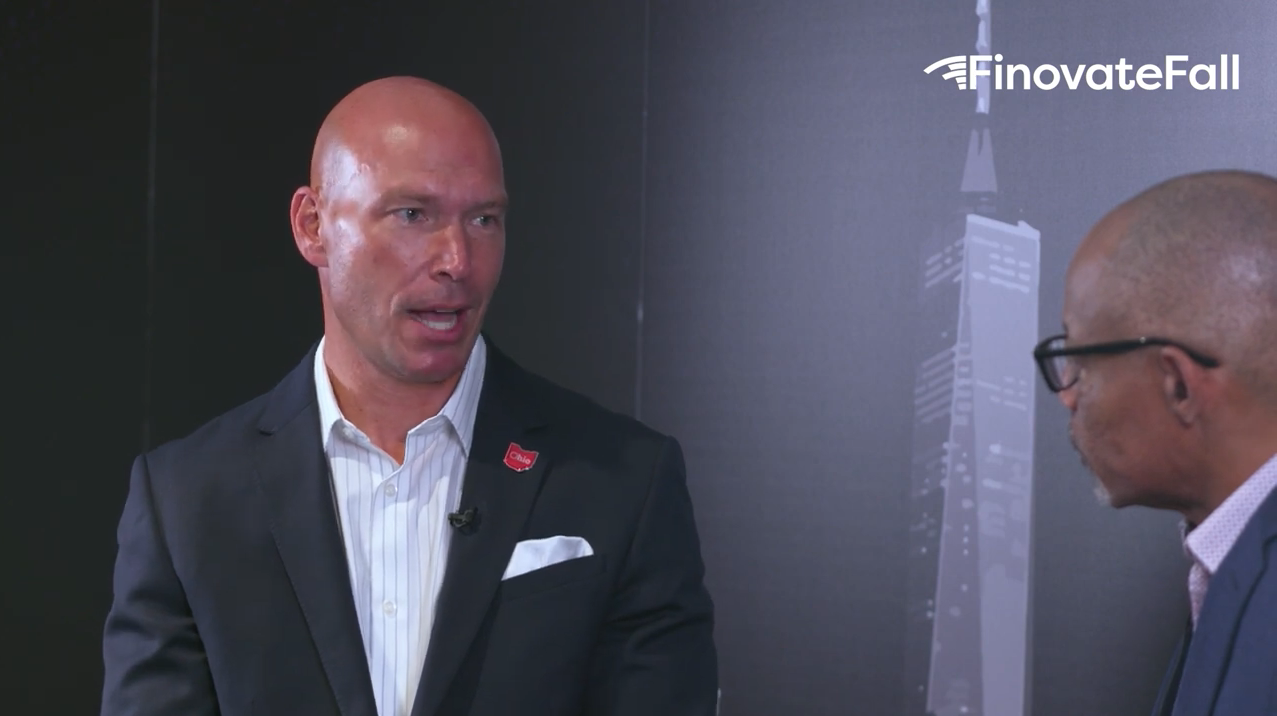
One of the areas of fintech that has benefitted significantly from the rise of enabling technologies like AI and machine learning is compliance. From reducing the role of manual labor via automation to streamlining complex processes to make rules easier for companies to follow, both regtech firms and compliance teams alike play a major role in ensuring the fintech innovations we enjoy are safe, do what they say they’ll do, and are as available to as many eligible consumers as possible.

We caught up with Sarah Murray, who leads the Deposit Product Team at Compliance Systems. She talked about the impact technology is having on the field of compliance, and discussed the key challenges that Compliance Systems is helping its 1,800 financial institution clients overcome.
How did you get started in fintech? What has led you to where you are today in your career?
Sarah Murray: Before fintech, I was practicing law in private practice, and I just knew I was ready to be out of the courtroom and do something different with my legal career. I started at Compliance Systems eight years ago as a product specialist and counsel; now I am happy to have led the product team for the last five years. I love my job because no two days are the same. I never thought I would spend some days researching legal topics and reviewing regulations, and other days reviewing code and testing software, but I love the challenge each day brings.
Tell us about the work you do for Compliance Systems.
Murray: I lead our deposit product team at Compliance Systems, which consists of attorneys, business analysts, software developers, and quality control specialists who all work toward the common goal of delivering compliant and innovative products to our 1,800 financial institution clients. I love the mixture of technology with the law and getting to keep my legal hat that I went to school for by delivering compliance solutions through technology to our clients.
What are your thoughts on the way technology is helping companies keep up with the changing regulatory environment?
Murray: Overall, I think it’s the job of technology to streamline and simplify, regardless of which industry we’re talking about. In the case of fintech and regulatory compliance, that means automating repetitive and high-risk compliance processes. It also means demystifying regulations where we can for the benefit of the consumers that those regulations are intended to protect.
Our proprietary research engine tool enables us to provide proactive and update-to-date compliance, and our team is constantly monitoring and tracking what is happening in the legal and regulatory spaces in real-time to ensure we can deliver timely compliance solutions to our clients. Our software provides updates through our cloud-hosted solutions, and our compliance safety net tool also provides interactive features that help our clients complete compliant transactions and provide a better level of customer service.

How has this evolved and how do you see it continuing to evolve leading into 2023?
Murray: The market has evolved through financial institutions rethinking compliance and needing to deliver a solution that meets their customers [and] members where they are: on their phones. We deliver compliance in a way that makes sense in a mobile-first environment and develop content with that in mind. This model isn’t necessarily what financial institutions are used to, but it is what customers [and] members strongly prefer: easily navigable, mobile-friendly content.
Financial institutions are telling us they want a single, streamlined approach for a customer, regardless of the channel (e.g. whether it be in branch or online). So, we’ve created a solution that satisfies the requests of both parties. You can open accounts through the same process as you would in a branch location, but on a mobile device with ease.
What challenges are you hearing in conversations with clients? What technologies are resonating most?
Murray: Our Simplicity Mobile, a mobile-first account opening solution, has been highly successful because it has helped address some of the main pain points for our clients. They communicated that they are looking to have a more streamlined, efficient, and consumer-friendly workflow to open accounts and to reduce friction in that process to avoid abandonment. This solution completed that challenge by offering native HTML content that a financial institution can include within their account opening workflow, and by supporting “click to sign” functionality.
Another challenge we are hearing from clients involves their treasury management solutions. Treasury management operations are a vital component of a bank or credit union’s commercial services, but the content needed to properly document this business can require costly outside counsel or consume internal resources that put a strain on operations. Also, financial institutions are looking for a better, more streamlined way to sign up their customers for their treasury services. They don’t want to have to create and maintain separate contracts for each treasury service and are looking to avoid inundating customers with multiple contracts and documents.
Our delivery model ensures that our clients will always be in compliance and our technology delivers the configurability needed for a treasury management solution, as many aren’t looking for a “one size fits all” fix. Our solution helps minimize operational and compliance risks for our clients while also providing a central hub for all compliance-related updates and content within our solution. Furthermore, our solution offers one master services agreement for treasury services to help improve a customer’s enrollment experience.
Are there any tips you would like to share on providing strong leadership in a male-dominated industry?
Murray: A few tips I have are to be passionate about what you do and work with integrity; work hard to deliver what you say you will do when you say you will do it; don’t be afraid to challenge the status quo and be an advocate for yourself and others. A big thing at Compliance Systems is that we believe in reinvesting in our products based on what we have learned from our clients and the industry. I would say it is important to have that mentality yourself as you grow. Learn from mistakes. Learn from what works. Learn from your colleagues and clients. Together as an industry, we can elevate the banking experience for all.













